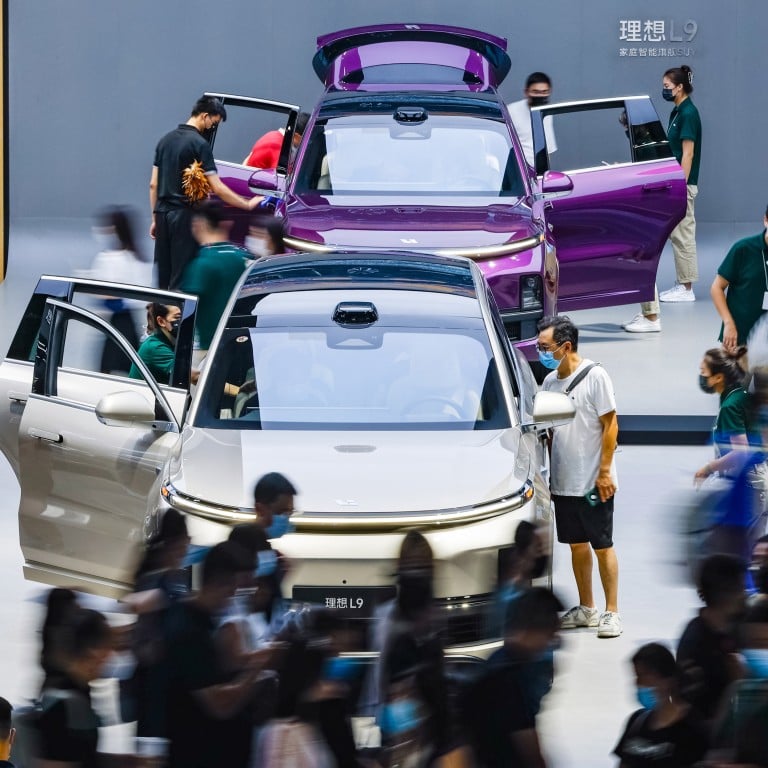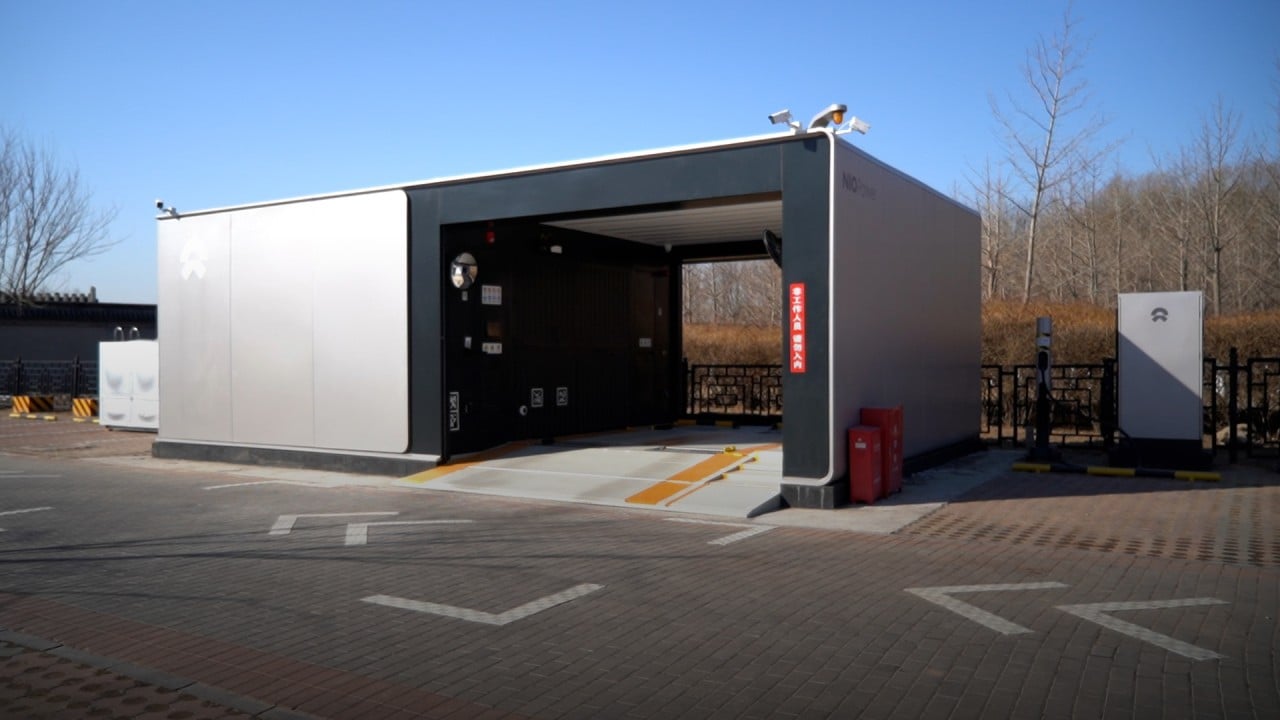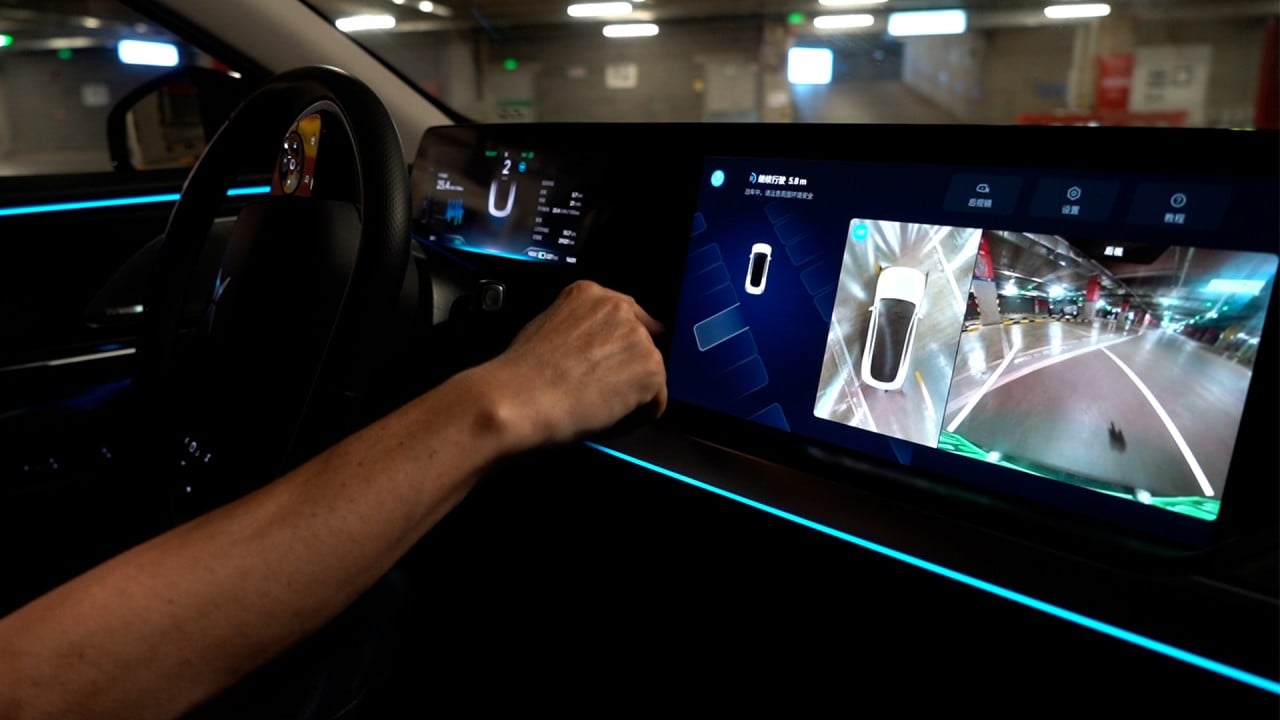
Li Auto, Xpeng and Nio report upbeat sales in September, but bumpy road ahead for Chinese EV makers amid increasing competition, analyst says
- Li Auto delivers 10,123 units of its new L9 SUV during its first full month of delivery
- September tends to be a good period for vehicle sales, as buyers like to travel in the coming months, Huanghe Science and Technology University professor says
Nio, Li Auto and Xpeng Motors, the top three Chinese smart electric vehicle (EV) makers, reported upbeat sales in September amid easing coronavirus restrictions in mainland China, but could face slowing growth amid heightened competition in the new energy vehicle (NEV) market.
“The Covid-19 situation has eased compared to the first half of the year, and the markets have opened up. This has definitely helped sales growth at [EV makers]. September also tends to be a good period for vehicle sales, as buyers like to travel in the coming months,” said David Zhang, visiting professor at the engineering department of Huanghe Science and Technology University.
Li Auto sees disappointing deliveries as supply chain constraints remain
Li Auto’s delivery of more than 10,000 L9 units in September – the first time that a domestic premium model priced over 400,000 yuan has achieved this monthly delivery milestone – is being viewed as establishing the EV as a top SUV choice for Chinese families, said co-founder and president Shen Yanan.
“The L9’s outstanding sales performance is a testament to our ongoing efforts to build and refine our in-house research and development, supply chain and intelligent manufacturing capabilities,” Shen said in a statement on Saturday.
The Beijing carmaker delivered 26,524 vehicles in the third quarter, missing its estimate of delivering 29,000 to 31,000 EVs between July and September, and falling short of a forecast of 35,000-37,000 units made by Deutsche Bank.



